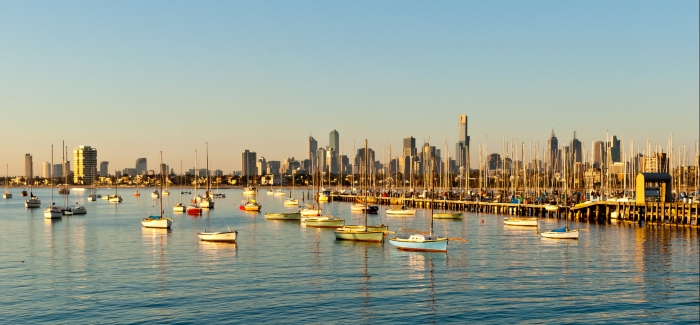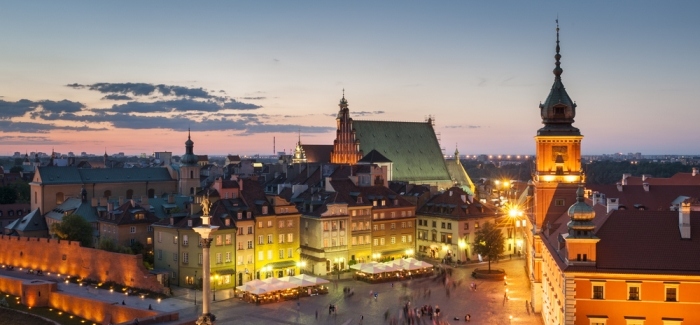The QS Best Student Cities 2017 results are out now, and Canada’s cultural capital Montréal is leading the way, demoting last year’s winner Paris to second place. But how much does it cost to study in Montréal and the rest of the top 10 best student cities?
Read on to find out which of our best student cities you can afford to live in, based on average living costs, tuition fees and each city’s Affordability ranking.
1. Montréal
- Affordability rank: 39th
- Average annual living expenses: CA$14,700 (~US$11,300) according to the Université de Montréal.
- Average international tuition fees (at QS-ranked universities): US$12,200 per year
Other things to mention:
- If you come from a warmer climate, you’ll also need to take into account the money you’ll spend on warm winter clothing - Montréal gets pretty cold!
- Don’t forget to factor in extra costs. Health insurance, for example, will cost around CA$600 (~US$450) a year.
Find out more about the costs of studying in Canada, plus other practical advice, in our complete guide.
2. Paris
- Affordability rank: 38th
- Average annual living expenses: €12,000 (~US$12,800), according to Université Paris-Sorbonne.
- Average international tuition fees (at QS-ranked universities): US$2,900 per year
Other things to mention:
- Tuition fees are the same in Paris for domestic and international students.
- The highly selective grandes écoles and grands établissements (great schools and establishments) set their own fees, which are considerably higher than other institutions.
Find out more about the costs of studying in France, plus other practical advice, in our complete guide.
3. London
- Affordability rank: 105th
- Average annual living expenses: at least £15,180 (~US$18,960)
- Average international tuition fees (at QS-ranked universities): US$21,400 per year
Other things to mention:
- Tuition fees vary depending on whether you’re classed as a home, EU or international student. (Find out more here).
- There’s so far been no increase in tuition fees for EU students following the Brexit vote, and EU students also remain entitled to the same loans and grants. However, this situation may change in the future.
Find out more about the costs of studying in the UK, plus advice on other topics, in our complete guide.
4. Seoul
- Affordability rank: 74th
- Average annual living expenses: US$13,500, according to Seoul National University (SNU)
- Average international tuition fees (at QS-ranked universities): US$6,300
Other things to mention:
- There are two semesters in each academic year in South Korea, and undergraduate programs are typically four years long.
- An increasing number of scholarships are available – you can browse some examples here.
Find out more about studying in South Korea.
5. Melbourne
- Affordability rank: 104th
- Average annual living expenses: AU$19,830 (~US$15,250). You can find a breakdown of weekly costs here.
- Average international tuition fees (at QS-ranked universities): US$23,300
Other things to mention:
- Your student visa allows you to work up to 40 hours a fortnight during term time, but you shouldn’t rely on part-time work to fund living costs.
- There are a range of scholarships available, including the merit-based Endeavour Scholarships and Fellowships, which are funded by the Australian government.
Find out more about studying in Australia with our complete guide.
6. Berlin
- Affordability rank: 16th
- Average annual living expenses: €9,600 (~US$10,240), according to the Hertie School of Governance.
- Average international tuition fees (at QS-ranked universities): US$0 (undergraduate)
Other things to mention:
- Tuition is free at undergraduate and PhD level, but you may need to pay fees for master’s programs.
- A variety of scholarships are available, including grants on the Erasmus + program.
Get more information and advice on studying in Germany with our complete guide.
7. Tokyo
- Affordability rank: 78th
- Average annual living expenses: US$17,300 according to Globis.ac.jp
- Average international tuition fees (at QS-ranked universities): US$6,600
Other things to mention:
- Tokyo receives a high score for Desirability and is one of the 10 safest student cities in the index.
- There are a number of scholarships available at universities in Tokyo, as well as some from the Japanese government – you can browse these here.
Find out more about studying in Japan with our complete guide.
8. Boston
- Affordability rank: 114th
- Average living expenses: US$20,750 per nine-month academic year, according to Boston University (equal to $27,666 per year).
- Average international tuition fees (at QS-ranked universities): $46,800
Other things to mention:
- Massachusetts Institute of Technology (MIT) and Harvard University, located near Boston, are both need-blind to international students. This means that your financial background is not considered when deciding to offer you a place and they pledge to meet your demonstrated financial need to enable you to attend.
- You can calculate your own costs of studying in Boston using the Net Price Calculator, which also tells you what financial aid you may be eligible for.
Get more guidance on studying in the US with our complete guide.
9. Munich
- Affordability rank: 23rd
- Average annual living expenses: €10,800, according to Speaking Denglish, a student blogger.
- Average international tuition fees (at QS-ranked universities): US$0 (Undergraduate)
Other things to mention:
- As with Berlin, tuition is free at all public universities at undergraduate/PhD level.
- Living costs are slightly more expensive than at Berlin, with private accommodation more expensive than student halls.
10. Vancouver
- Affordability rank: 51st
- Average living expenses: CA$10,050 (~US$7,700) for every two semesters (eight months) according to Vancouver’s Columbia College, which is equal to CA$15,075 (~US$11,525) per year.
- Average international tuition fees (at QS-ranked universities): US$18,000
Other things to mention:
- The University of British Columbia’s Graduate School has a Living Cost Calculator that allows you to get an estimate of your expenses based on your situation (e.g. whether you have children or plan to bring a partner).
- Vancouver is the most expensive city to rent in Canada.
Figures given for living costs are average estimates only. Your budget may differ, depending on your lifestyle and spending habits.
Want more content like this? Register for free site membership to get regular updates and your own personal content feed.













